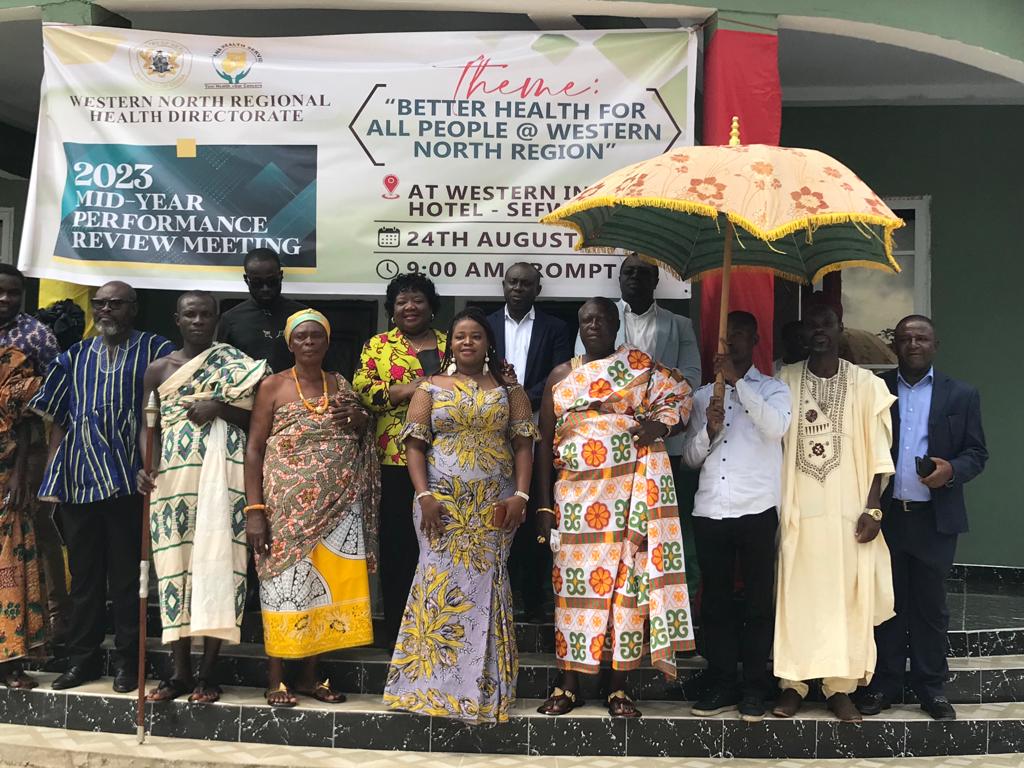By Alex Baah Boadi
Bodi (WN/R), Aug. 28, GNA – Currently, the proportion of newborns attached to breast within 30 minutes of delivery had increased from 96 percent in 2022 to 99 percent in 2023.
The increase was observed under the “Accelerate Action to Improve Maternal and Newborn Survival” programme in the Western North Regions, reported to have chalked significant successes.
Meanwhile, functional CHPS zone had also increased from 59.7 percent in 2022 to 73.3 percent in 2023 and bed occupancy rate from 55 percent to 61 percent.
The percentage of children due for second dose of measles and the distribution of LLINs increased from 93 percent in 2022 to 97.1 percent in 2023 and total maternal deaths decreased from nine in 2022 to seven in 2023, among others.
Dr Marion Okoh Owusu, Regional Director of Health Services expressed satisfaction as there had been a significant improvement in all indicators as compared to the previous year during the Mid-Year Performance Review organised by the Directorate.
The three-day performance review meeting was under the theme “Better Health for All” and was participated by the District Health directors from the Nine districts in the Region, stakeholders and development partners.

“As the pioneer Regional Health Director, I am happy for this achievement which was made possible with the support of my regional health Committees, regional health management team and community stakeholders.”
She announced that the Region had created the Network of Practice at the sub districts to form committees at the health centers and CHPS compounds for collaboration during referrals for improved health care delivery.
According to her, the Regional Health Directorate had already trained nurse managers who would go to the various health facilities to train other nurses for a successful implementation of the programme.
Dr Okoh commended the Ghana Health Service for posting more health professionals to the region but appealed to them to Post additional Specialists, Doctors, and more supporting staff at the regional health administration.
She gave assurance that the regional health administration had put in place adequate measures to support newly posted staff to the region and asked health professionals to accept postings to the region.
Dr Okoh appreciated the role of traditional authorities and all stakeholders for their support during her time and asked them to give some or more of such support to the incoming regional health director.
She has since been transferred to the Central Region as the Regional Director of Health Services.
GNA